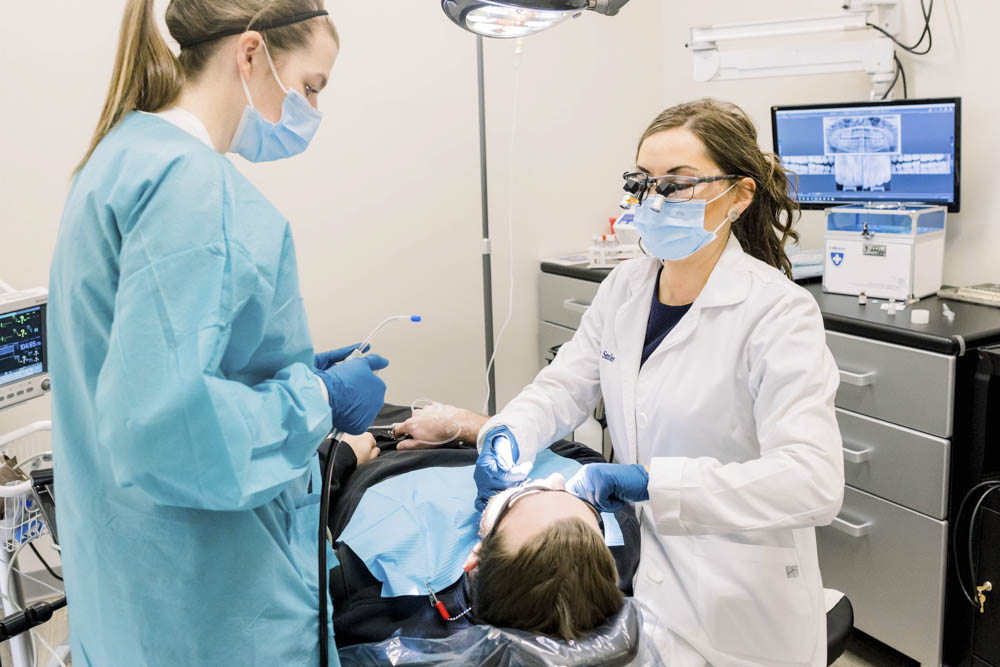Tooth Extractions
While it’s always our goal to care for and maintain your natural teeth, there are cases when removing a tooth is in your best interest. We work to make tooth extractions as easy as possible, offering same-day appointments, so you can focus on a quick recovery.
The Process of Tooth Extraction
Tooth extraction is typically a very fast process—we will use anesthesia to ensure you’re comfortable. The most critical part of the process is recovery. We need to make sure we control the bleeding and encourage a proper healing process immediately following the tooth extraction. This involves having you bite down on a gauze pad for 30 to 45 minutes to form a blood clot. You must be extremely careful not to disturb the blood clot for the next 24 hours. To manage swelling, we recommend an ice pack on the outer cheek, and once swelling has gone down, a warm compress to the same area for comfort. Gentle rinses with warm saltwater also help keep the extraction area clean.

-
How can I prevent dry socket after tooth extraction?
When you have a tooth extracted, a blood clot develops shortly after the surgery, which is your body beginning the healing process. If this blood clot becomes dislodged before your mouth has fully healed it can cause pain, this is called dry socket.
Six tips for avoiding dry socket are:
- Avoid straws or anything that creates a suction or large movement of air.
- Avoid smoking tobacco as the fast inhalation can dislodge your blood clot and the chemicals may prevent healing or cause an infection.
- Eat soft foods only like applesauce, yogurt and mashed potatoes for the first one or two days.
- Inquire about any medicines you’re taking to ensure they don’t interact with the healing process.
- Use proper oral hygiene to keep your mouth clean and consider an antibacterial mouthwash.
- Follow your doctor’s instructions on proper oral care to improve recovery time.
-
When and why are wisdom teeth removed?
Wisdom teeth are the very last teeth to develop, and they grow in the very back of the mouth. In most cases, you will start to feel these teeth emerge when you are in your late teens or early twenties. Almost everyone has these teeth removed since they tend to grow at a severely slanted angle and will likely bump into other teeth and cause crowding. These is also very little space available for these teeth. Ultimately, about 85% of adults end up having their wisdom teeth removed.
-
What causes the need for tooth extraction?
Tooth extraction is the removal of a tooth from its socket in the bone. Teeth extraction usually occurs when a tooth has been broken or damaged by decay and there is too much damage for the tooth to be repaired by a filling or crown.
However, there are other reasons for tooth extraction including, extra teeth growing in that are blocking others, baby teeth that haven’t fallen out in time for the permanent teeth to come in, braces, wisdom teeth that are commonly removed or medical reasons.
More Questions?
If you have more questions about tooth extractions, please contact our office and we will be happy to discuss further. You can also request an appointment or see the other services we provide using the links below.
